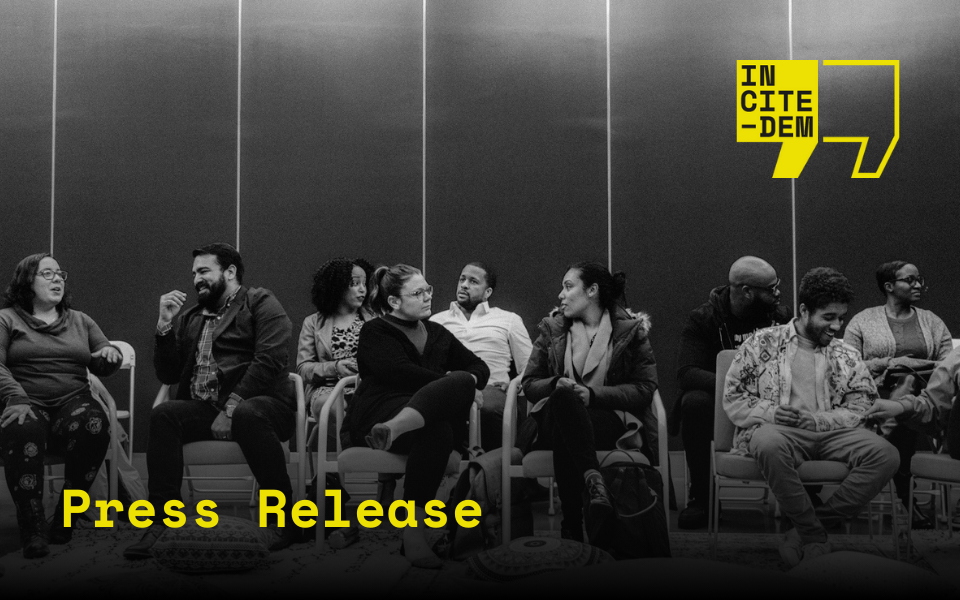The European Union-funded project INCITE-DEM has published two groundbreaking reports exploring the historical contribution of Democratic Innovations (DIs) to more inclusive governance and to tackling pressing sustainability challenges. These findings emerge at a critical moment, with European and Global democracies grappling with declining trust, rising populism, and growing public disillusionment with traditional political institutions. The reports provide an in-depth historical analysis of what participatory and deliberative processes can deliver to a more engaged and empowered citizenry and its potential to revitalise democracy, but also highlights the long and winding road to achieve such goals.
What Are Democratic Innovations?
Democratic Innovations are institutions, processes and mechanisms designed to deepen and broaden citizen participation in democratic governance. They go beyond traditional voting mechanisms by actively involving citizens in policy-making and decision processes, ensuring a more direct form of public engagement. Examples include participatory budgeting, where citizens help decide how public funds are allocated, and deliberative mini-publics, such as citizen assemblies or juries, where randomly selected individuals deliberate on complex public issues and make informed recommendations to policymakers. Alongside, a wider range of initiatives have disseminated globally on different policy issues with a view to influence democratic governance through the adoption of participatory and collaborative settings. Today, DIs are seen as important tools to combat the erosion of trust in democratic systems and to address global challenges, such as climate change and social inequality, through more inclusive and effective governance.
Key Findings: A Historical Perspective on Democratic Innovations
The report maps the evolution of DIs, showing how they have adapted to different political and social contexts:
- 1960s and 70s: Grassroots movements for democratization spurred demand for participatory governance.
- 1980s and 90s: Participatory budgeting, pioneered in the Global South, emerged globally and the “deliberative turn” emphasized informed citizen engagement in policy-making.
- 2000s: Institutional frameworks for DIs gained international recognition, fostering diverse participatory mechanisms, namely deliberative mini-publics.
- 2010s: Period of hybridization, blending digital and in-person democratic practices, while advancing transformations to challenge established governance models.
This historical journey underscores the adaptability of DIs in shaping participatory deliberative democratic frameworks.
Uneven Implementation Across Europe
Despite some limitations related to available data, the reports reveal disparities in the adoption and success of DIs across Europe. The United Kingdom, Germany, and Italy stand at the top of DIs, demonstrating both a long-standing tradition of democratic experimentation and recent efforts to promote citizen participation in governance. These countries have seen a significant rise in innovations such as participatory budgeting and citizen assemblies, which are helping to reshape local and regional governance.
However, the picture is less uniform in other parts of Europe. Eastern European countries show limited adoption of DIs. Empirical data suggest that structural issues, such as weaker civil society networks and historical legacies of authoritarianism, may explain this disparity.
Spain, Belgium, and the Netherlands show moderate engagement, with growing interest in DIs but still trailing behind the leading countries.
The uneven distribution of DIs in Europe raises concerns about their reach to marginalised groups of society, thus pointing to the need for further research and targeted support to expand participatory governance into less-represented regions.
The Majority of DIs Implemented at the Local Level
The reports also highlight a notable trend: most DIs are implemented at the local level, often focusing on community-driven projects. While this local focus allows for innovation and experimentation, it raises questions about scalability. Complex, large-scale policy issues such as environmental protection or economic reform require governance at the national or even supranational level. Despite some examples of national-level DIs, such as the Irish Constitutional Convention or recent EU-wide climate assemblies, the reports caution that scaling up these innovations remains a significant challenge. The reliance on local-level projects suggests that while democratic innovations are thriving in smaller settings, there is still a long way to go in extending their reach and impact to broader governance structures.
Policy Domains and the Role of Democratic Innovations in the Policy Cycle
Democratic Innovations are applied across a wide range of policy domains, with a strong focus on urban planning, environmental sustainability, and governance reforms. Participatory budgeting, for example, has proven especially popular in urban planning, enabling citizens to directly influence how resources are allocated for local projects. Deliberative mini-publics, on the other hand, are often convened to address issues of environmental sustainability and social justice, providing a space for in-depth, informed deliberation on topics that might otherwise be dominated by political elites or technocrats.
The findings reveal that DIs often remain concentrated at the decision-making stages of the policy cycle, with less influence in the later stages of implementation and evaluation. This raises critical questions about their long-term effectiveness in fostering a participatory culture. While they may empower citizens to voice their opinions and shape policy, little involvement through the full cycle of policymaking is likely to limit effectiveness and sustained change. To fully realize their potential, Dis must be integrated into all stages of the policy process, ensuring that citizen participation continues beyond initial consultations.
The Role of Digital Participation
One of the most promising findings in the reports is the increasing role of the digital sphere in enhancing democratic participation. The COVID-19 pandemic accelerated the adoption of digital tools, enabling citizens to participate in deliberative processes remotely. This shift has opened new possibilities for broadening access to democratic participation, particularly for individuals who may be unable to attend in-person meetings due to geographic or logistical barriers.
However, the research warns that digital participation comes with its own set of challenges. While technology can make DIs more accessible, it can also exacerbate existing inequalities. The digital divide – the gap between those who have access to technology and those who do not – remains a significant barrier to truly inclusive participation. To ensure that digital DIs are genuinely democratic, efforts must be made to address these inequalities, providing equal access to the tools needed to participate fully in democratic processes.
Democratic Innovations: A Response to a Crisis of Democracy?
The rise of populism increased political polarisation, and declining voter turnout have led to widespread concern about the health of democracy in Europe and beyond. Democratic Innovations offer a way to rebuild trust and bridge the gap between governments and citizens.
While DIs show promise in addressing these challenges, the report also caution that much more needs to be done. While initiatives like participatory budgeting and citizen assemblies can help restore public trust and bring citizens closer to decision-making, they are not a panacea. To have a truly transformative impact, DIs need to be more inclusive, engage marginalised and underrepresented groups and be supported by institutional frameworks that ensure their recommendations are implemented. Without these safeguards, there is a risk that DIs may remain symbolic rather than transformative.
Moving Forward: A Call for Broader and Deeper Engagement
The INCITE-DEM reports provide valuable insights into the current landscape of Democratic Innovations in Europe, highlighting both their potential and their limitations. The findings show that while DIs are making strides in involving citizens in governance and addressing key policy challenges, their impact remains uneven.
For Democratic Innovations to critically address what is understood as a crisis of representative democracy, they should be institutionalised across all levels of governance and throughout the policy cycle. This requires not only political will but also the development of social support and preparation of public administration to ensure that DIs are inclusive, impactful, and sustained over time.
As Europe continues to face complex challenges, Democratic Innovations offer a way to strengthen the resilience of democratic institutions and build a more participatory and sustainable future. However, as pointed out by the reports, achieving this vision will require significant effort and a commitment to deepening and broadening citizen participation in all aspects of governance.
The full reports are available on the INCITE-DEM website: https://incite-dem.eu
Report and timeline of (e)participation and engagement practices: HERE
Database and Timeline on the history of participation and engagement: HERE
Policy Brief: HERE
For media inquiries
Roberto Falanga – Assistant Research Professor at the Institute of Social Sciences, University of Lisbon, leader of INCITE-DEM’s Historical review of participation and engagement work-package – roberto.falanga@ics.ulisboa.pt
INCITE-DEM is Funded by the European Union. Views and opinions expressed are however those of the author(s) only and do not necessarily reflect those of the European Union or European Research Executive Agency (REA). Neither the European Union nor REA can be held responsible for them.

